Professional Open-Source Data Center and Cloud Management
openQRM has partnered with Hyperscalers to offer both internal-IT and commercial service providers with everything they need to deliver Infrastructure as a Service IaaS and Platform as a Services PaaS as part of private or public cloud model.
IaaS Cloud Computing and Data Center Management framework for operators.
openQRM Enterprise provides you with a complete Automated Workflow Engine for all your Bare-Metal & VM deployment and all of your IT subsystems. Gain higher efficiency through management, automation and monitoring of your Data Center & Cloud capacities.
- Billing Integrated. Automatic billing, overview and interface to SAP, etc.
- Extends your datacenter capacity by shifting load to AWS EC2, OpenStack, etc.
- High Availability. Automatic HA for Systems & Cloud deployment.
- Management Overviews. Stay in sync with your Data Center's reality.
- Major hypervisors/containers supported: KVM, XEN, Citrix XenServer, VMWare ESXi.
- Migration. Automated server migration P2V, P2P, V2P, V2V.
- Integrates with all major open and commercial storage technologies.
- Auto monitor your IT infrastructure. Detect problems & security breaches.
- Manage multiple datacenter locations from one web console.
Integrates with the best Open Source management tools: puppet, nagios/Icinga, collectd, etc.
100% Automation for your Workflows with openQRM Enterprise Plug-Ins
- openQRM Enterprise for your PrivateCloud/ HybridCloud
- Your infrastructure in the Cloud - Ideal for R&D, QA & for your production environment. Save time and ensure swift IT service delivery with increased automation! Simply let users provision their servers via self-service portal and receive application stacks in minutes
- openQRM Enterprise for your ISP Business
- Set up, automate, manage and provide the best service for your customers. As an Internet Service Provider you reap in the benefits of openQRM Enterprise. Automate network management & preconfigure network-bridges. Provide Cloud self-service with comprehensive billing...
openQRM Enterprise for KVM Environment
- openQRM Enterprise Edition offers you extensive management, automation and monitoring possibilities. Profit from the technical benefits of KVM like hardware support, memory support and a high security level all at the lowest ongoing cost. Simply add additional plug-ins for more functionality.
- openQRM Enterprise for your VMware vSphere Environment
- Directly connect to VMware vCenter-server in a vSphere environment. Auto-install ESXi hosts on bare-metal hardware. Simply put a Private Cloud on-top of your existing VMware vSphere environment. HA, monitoring, ip-management and much more are automatically also available for VMs.
Visit the Product Pricing page here.
OpenQRM Appliance
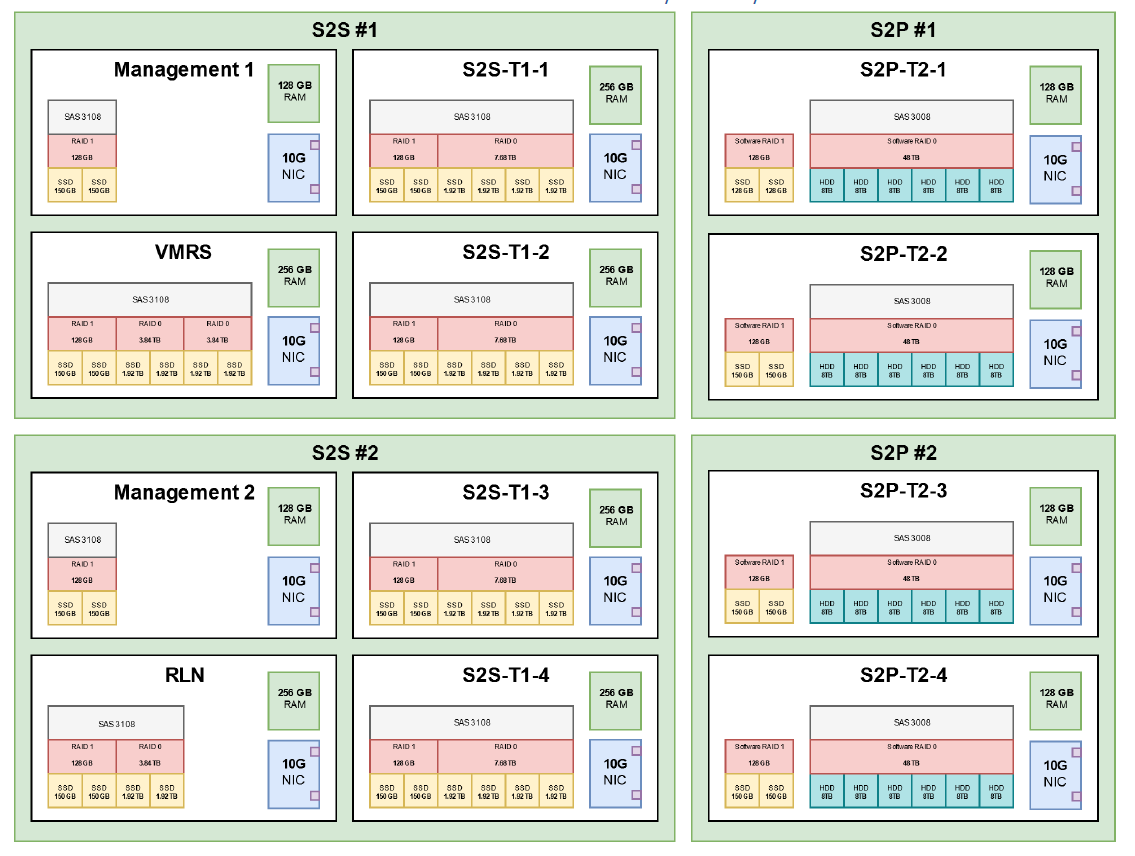 Contents Contents
1.1 - Physical System Architecture ................ 5
1.2 – OpenQRM High Level Architecture...... 6
2.0 – Hardware Checks .................................. 7
2.1 – CPU ............................................ 7
2.2 – RAM .................................….............. 7
2.2.1 – Management Nodes ............................ 7
2.2.2 – Tier 1 Nodes .................................................. 7
2.2.3 – Tier 2 Nodes ...................................................... 7
2.3 – NIC ......................................................................................... 8
2.4 – Storage Card ..................................................................... 8
2.4.1 – Management and Tier 1 Nodes ............................................. 8
2.4.2 – Tier 2 Nodes ................................................................. 8
2.5 – Disks ............................................................................... 8
2.5.1 – Management Nodes ........................................... 8
2.5.2 – S2S-T1-1/2/3/4 ..................................................... 9
2.5.3 – S2P-T2-1/2/3/4 ........................................ 10
3.0 – Network Switches and Cumulus Set up ............................................... 11
3.1 – Network Topology Introduction ................................. 11
3.2 – Network Topology Explanation .................................. 11
3.3 – Configuring Management Switches ............................................... 12
3.4 – Configuring Data Path (Leaf/Spine) Switches ............................ 13
3.4.1 – Connections and Configuration .................................... 13
3.4.2 – Commands ............................................ 16
4.0 – Debian Install Process ................................................ 17
4.1 – Preparations ......................................... 17
4.1.1 Preparing Installation Media .............................................. 17
4.1.2 Preparing the node for USB Boot ........................................ 17
4.1.3 – Boot Screen ....................................................... 19
4.2 – Debian Installation Process ......................................................... 20
4.2.1 – Select Language, Location and Keyboard Layout ............................... 20
4.2.2 – Configure Networking ............................................... 21
4.2.3 – Hostnames and Domain Names ..................................... 22
4.2.4 – Set up Root Password .................................................. 23
4.2.5 – Set up User name and User Password ...................................... 24
4.2.6 – Set up Location and Clock ........................................................... 25
| 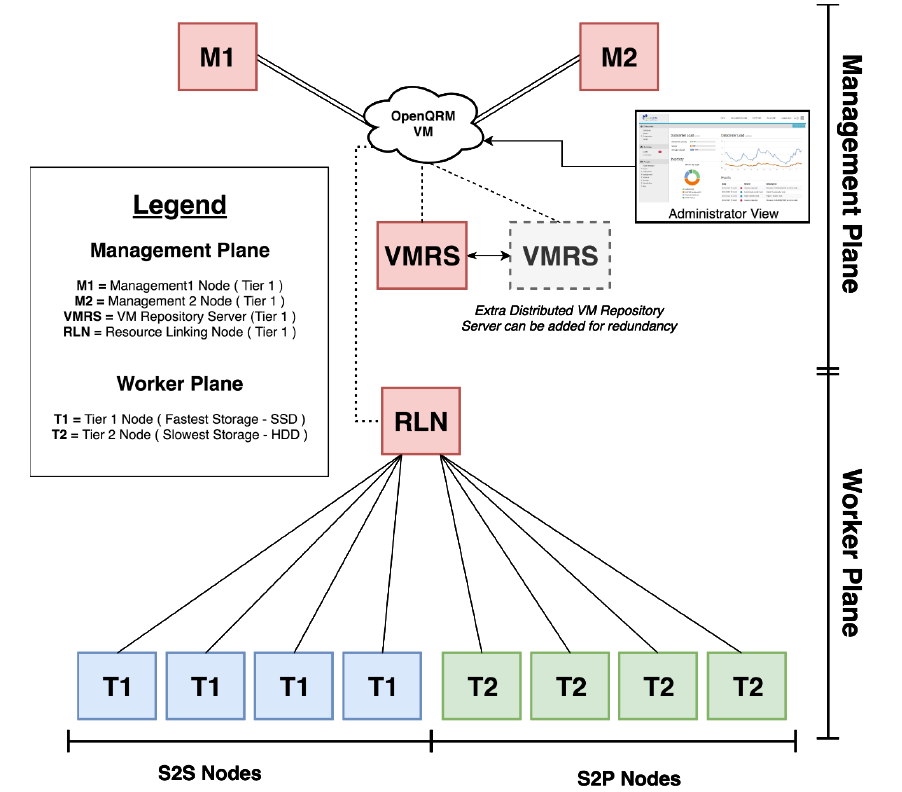
…. 4.2.7 – Partitioning the Storage for the Operating System .................................... 26
4.2.8 – Package Manager Configuration and Selecting packages ....................... 42
4.2.9 – Finalizing the Installation ......................................................... 46
5.0 – OpenQRM Installation ..................................... 47
5.1 – OpenQRM Management Group Architecture ........................................ 47
5.2 – OpenQRM Worker Architecture ...................................................... 48
5.3 – OpenQRM Installation Preparation (Management Nodes) ...................................... 49
5.3.1 – Installing required packages ....................................... 49
5.3.2 – Network Setup ....................................................................... 50
5.3.3 – Copying the OpenQRM Installer ............................................................... 51
5.3.4 – Running the OpenQRM Installer ......................................................... 54
5.3.5 – Small Network Changes .................................................. 60
5.3.6 – Access OpenQRM VM through VNC.................................. 61
5.3.7 – OpenQRM Internal Network Configuration (OpenQRM VM) ....................... 62
5.3.8 – Update OpenQRM (OpenQRM VM) ............................................... 63
5.3.9 – Transferring OpenQRM Installation to OpenQRM VM ............................. 64
5.3.10 – OpenQRM Installer Extraction and Installation (OpenQRM VM) ................... 65
5.3.11 – OpenQRM Web Access ........................................... 69
5.3.12 – OpenQRM Initial Configuration and Licensing ............................. 70
5.3.13 – Extra Licensing in OpenQRM .......................................... 74
5.4 – OpenQRM HA Installation (Management Nodes) ...................................... 75
5.4.1 – Installing required packages ................................................ 75
5.4.2 – High Availability Cluster Setup ................................................. 75
5.4.3 – SSH Configuration for Management Node ........................................... 79
5.4.4 – High Availability Cluster Admin Setup .......................................... 80
5.4.6 – Checking Cluster Status ................................................................. 81
5.5 – OpenQRM Resource Configuration ................................................ 82
5.5.1 – OpenQRM local-server Plugin Installation .................................... 82
5.5.2 – Exposing Node Resources to the local-server Plugin ...................................... 83
5.5.3 – Displaying resource list ................................................ 85
6.0 – Hardware Links ............................................................. 86
7.0 – Software References ....................................................................... 87
|
REGISTER TO DOWNLOAD THE FULL POC DOCUMENT
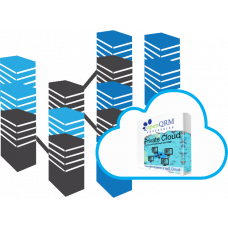
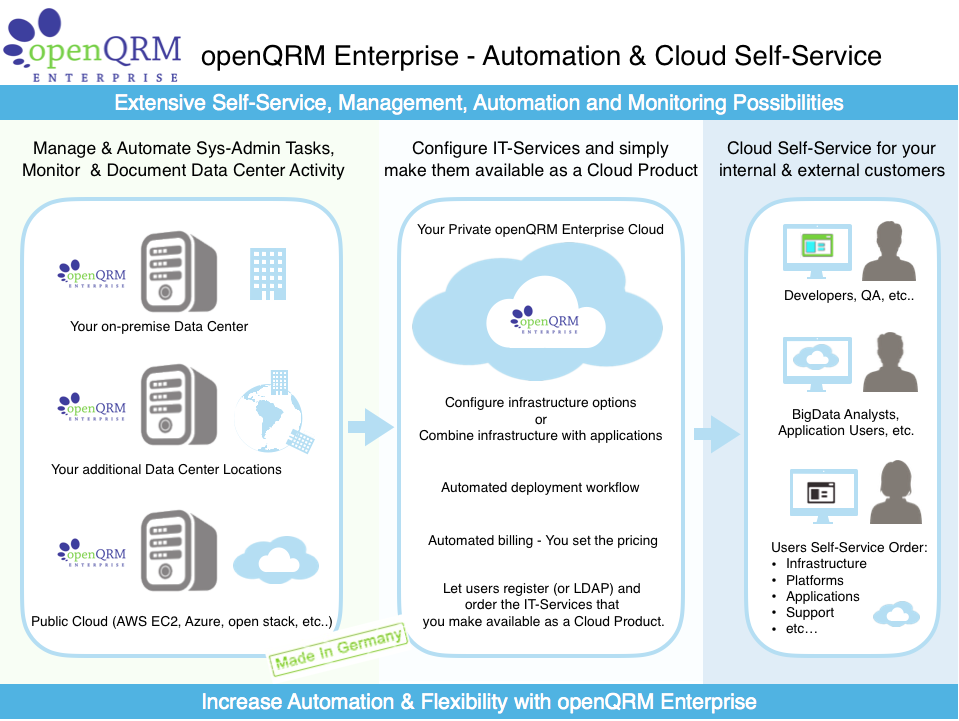
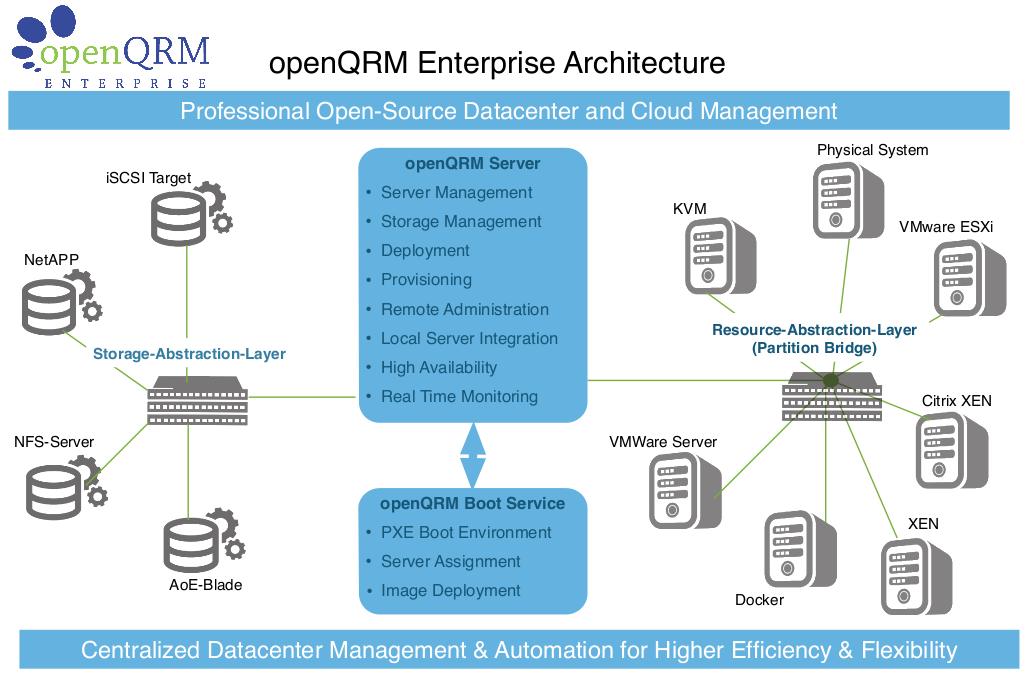


 US site
US site Contents
Contents